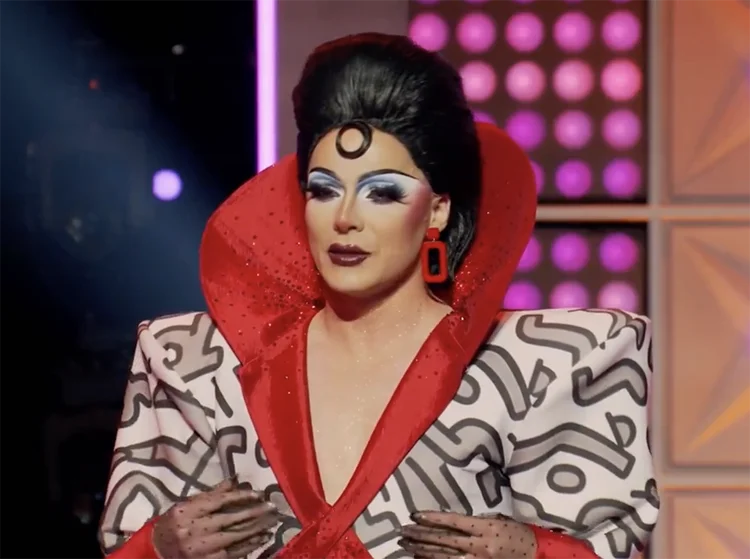In the vibrant world of “RuPaul’s Drag Race,” where the fabric of reality is as colorful and diverse as the contestants themselves, a profound conversation about HIV has been brought to the forefront by the talented queen Q. This dialogue is more than a testament to personal resilience; it’s a beacon for the LGBTQ+ community, emphasizing the show’s influential platform in addressing vital issues like HIV awareness and the associated stigma. Q’s courageous decision to share her HIV-positive status is not only a step toward personal healing but also a monumental stride toward destigmatizing the condition.
Breaking the Silence
At just 26, Q chose to share her status in a moment of vulnerability, aiming to illuminate the shadows cast by stigma. Her story is a vivid narrative of fear, isolation, and the quest for acceptance in the face of adversity. Wearing a Keith Haring-inspired dress, a nod to the artist and activist who himself succumbed to HIV-related causes, Q’s runway presentation was more than a fashion statement—it was a powerful homage to those lost to the AIDS epidemic and a visible stand against the stigma that still clouds the disease.
Advocacy Through Authenticity
The discourse around HIV on “Drag Race” isn’t new; queens like Ongina, Trinity K. Bonet, and Charity Kase have previously shared their stories, contributing to a legacy of awareness and advocacy within the show. However, Q’s revelation is a reminder of the ongoing challenges faced by those living with HIV, including discrimination and the dire need for empathetic healthcare providers. Her story underscores the importance of representation and support from within the community, highlighting how vital it is for LGBTQ+ individuals to engage in healthcare professions.
A Call for Compassion and Understanding
Through laughter and tears, the contestants on “Drag Race” have continually shown that the stage they compete on is more than just a platform for entertainment; it’s a space for profound social commentary and change. Q’s bravery in sharing her journey with HIV is a powerful call to action for increased understanding, compassion, and support for those living with the virus. It emphasizes the need for a shift in societal attitudes and for healthcare providers to treat their patients with dignity and respect.
Conclusion: The Runway as a Platform for Change
As “RuPaul’s Drag Race” continues to dazzle and educate its audience, the stories of queens like Q serve as poignant reminders of the show’s role in challenging norms and fostering a more inclusive and empathetic world. Her story is not just about the struggles of living with HIV; it’s about the power of visibility, the importance of conversation, and the unwavering spirit of a community that refuses to be silenced by stigma.

